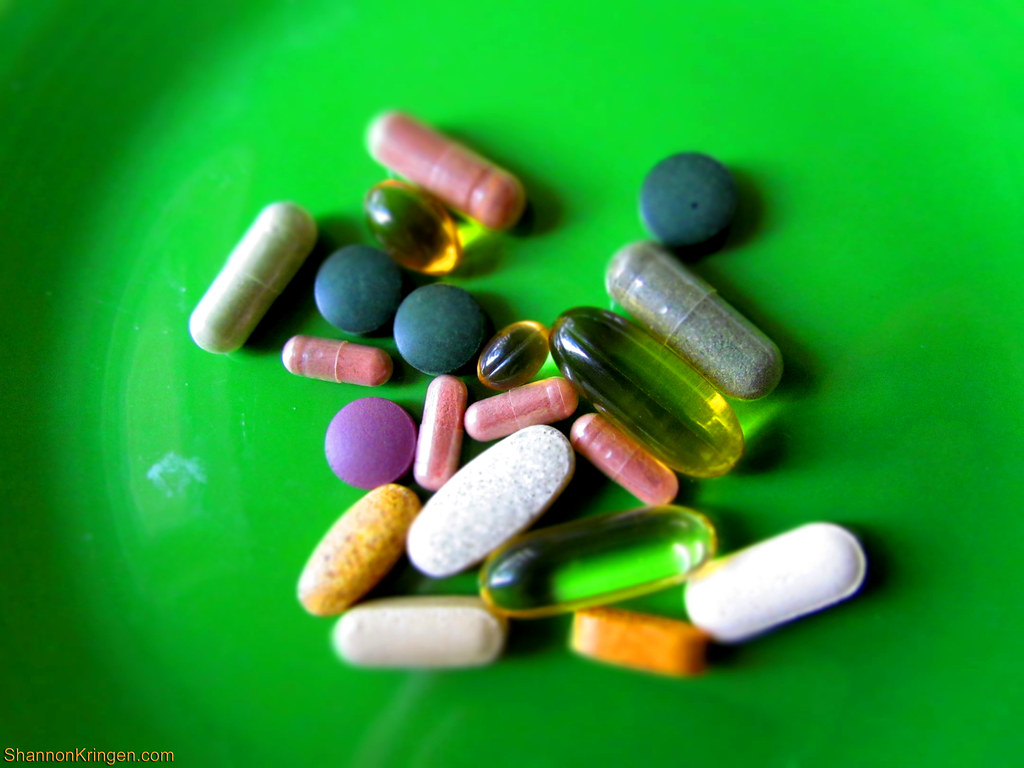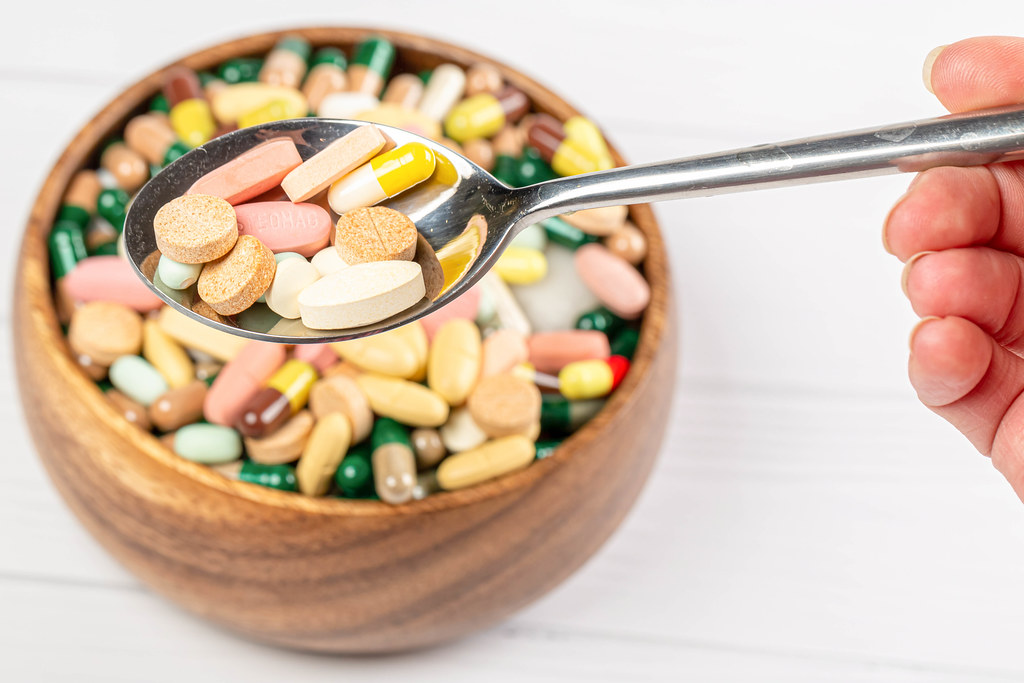6 Important Steps to Choose Your Food Supplements
Summary
– Step 1: Beware of drug interactions
– Step 2: Buy quality supplements
– Step 3: Don’t overuse supplements
– Step 4: Pay attention to recommended dosages
– Step 5: Be aware of the composition of some supplements
– Step 6: Avoid certain supplements
The current diet can cause certain deficiencies. There are food supplements to overcome this problem.
However, food supplements are numerous, and there are many brands and laboratories. So, how do you choose them? Which products should you choose? What are the essential elements to pay attention to?
Here are our tips for choosing the right food supplements.
1. Beware of drug interactions
Before buying a dietary supplement, you should make sure that it is not contraindicated in your case. This means that you must find out about its composition, i.e., its active ingredients, to know :
– if the chosen food supplement is not incompatible with your current treatment if you have one;
– if your health condition does not contraindicate the use of this food supplement.
There is no safer solution in this case than to ask your therapist (doctor, naturopath, dietician…) or your pharmacist. This is essential to avoid taking any unnecessary risks, especially if you are pregnant or breastfeeding (even if this information is generally provided on the box).
Certain food supplements may contain anti-inflammatory plants (willow, meadowsweet, turmeric, birch, licorice …) that may disrupt the body’s natural defenses to fight infections such as Covid-19.
Note: Be careful not to consider food supplements as miracle cures. They will never replace a healthy lifestyle, a balanced diet, and a life with little stress. They also do not exempt you from taking the treatment prescribed by your doctor.
2. Buy quality food supplements

Although this is not true in every field, it is unfortunately often the most expensive product that is the most effective in food supplements. The sometimes high prices are most often justified by quality ingredients (sometimes from organic farming) and natural rather than synthetic. To be sure of the quality of food supplements:
– Read labels carefully and avoid products sold in supermarkets.
– Prefer food supplements available in pharmacies or health food stores, or even on the Internet if you have access to all the information about the product. If the labeling is inaccurate, avoid this supplement.
– Check that they comply with the legislation. To do this, make sure that the following information is mentioned on the labeling:
◦ the name of the categories of nutrients or substances characterizing the product or then an indication relating to the nature of these nutrients or substances;
◦ the recommended daily portion of the product;
◦ a warning against exceeding the indicated daily dose;
◦ a statement to prevent dietary supplements from being used as substitutes for a varied diet;
◦ a sign that you should keep the products out of the reach of children.
Note: several laboratories that offer excellent quality products operate only by mail order, so this mode of sale is not systematically to be ruled out.
3. Don’t overuse dietary supplements
Do not buy food supplements unnecessarily. Indeed, in some cases, a healthy and adapted diet can be enough to meet your needs.
For example, there is no need to buy iron if you eat red meat, lentils, and blood sausage. In the same way, except for particular conditions and unique recommendations, you will find vitamin C in sufficient quantities in kiwis and substantial amounts in sea buckthorn berries.
Moreover, buying a food supplement intended to provide you with an element that you already have could lead to:
– in the best case to its elimination since it is useless;
– in the worst case, problems due to its presence in excess (this will be the case with iron, copper, or certain antioxidants).
The best thing to do is to find out, with the help of your therapist, if you are indeed lacking the substances you are considering taking as supplements.
Ideally, you should then have regular check-ups to see if your levels are coming back into balance. However, the disappearance of symptoms should be enough to tell you if the supplement is working.
4. Pay attention to recommended dosages

Supplements in capsule form whose manufacturers recommend taking them once a day are questionable. Indeed, even the best supplements are not effective enough to deliver enough active ingredients in a single dose.
Remember that, in general, food supplements, especially vitamins and minerals, work better in complexes than in isolation. Especially since multivitamin supplements (containing a dozen vitamins and twenty minerals, including little or no iron, copper, zinc, and manganese) seem to be effective for the most part.
Good to know: it is also sometimes necessary to couple certain food supplements to promote their assimilation: for example, pepper with turmeric (except in cases of intestinal hyperpermeability). Coenzyme Q10 with red yeast rice…
On the other hand, avoid exceeding the recommended dosages, follow the instructions and avoid taking food supplements containing the same active substances simultaneously.
Also, take occasional cures and do not take continuous treatment unless expressly advised.
5. Be careful about the composition of certain food supplements
Although many brands exist and dosages differ, be careful:
– probiotics: they must contain at least 9 different strains to be genuinely effective (as opposed to only three in the products offered in pharmacies) and, if possible, be associated with prebiotics;
– vitamins:
◦ E and beta-carotene: they must be natural (the chemical formulation of natural vitamin E is “d”, that of the synthetic “dl”), synthetic forms are little recommended;
◦ B: you find it in its natural state in fish oil extracts;
◦ C: of equivalent quality, whether synthetic or natural, but it remains preferable to prefer acerola to ascorbic acid.
– Omega-3: they must also be natural and therefore from marine or vegetable oils;
– potassium: make sure you use it in the form of bicarbonate or citrate;
– Zinc:
◦ prefer it in the form of zinc citrate or gluconate;
◦ avoid excess (only about 15 mg per day);
◦ take it away from iron (which decreases its assimilation).
– to Aloe vera gel and juice: make sure they do not contain reconstitution water, citric acids, and preservatives; they must be from the whole pulp and be organic.
6. Avoid certain food supplements
As far as possible, try to avoid food supplements
– coming in the form of colored coated tablets, prefer:
◦ capsules;
◦ natural tablets (from organic farming);
◦ powders;
◦ ampoules.
– Synthetic products or products containing colorants, flavors, sweeteners, and other chemical preservatives;
– whose instructions are written in approximate English or poorly translated.


